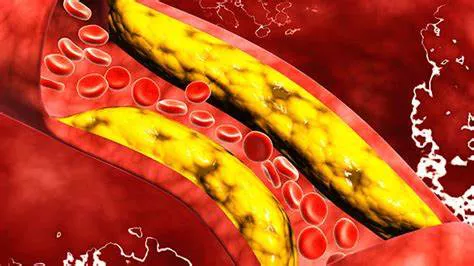Hypercholesterolemia and hyperlipidemia are two terms often used interchangeably in discussions about lipid disorders and cardiovascular health. However, there are distinct differences between these conditions, both in terms of their definitions and implications for health.
What Is Hypercholesterolemia And Hyperlipidemia?
Hypercholesterolemia and hyperlipidemia are both conditions characterized by elevated levels of lipids in the blood, particularly cholesterol and triglycerides. Lipids, including cholesterol and triglycerides, play essential roles in various physiological processes, but abnormalities in lipid metabolism can contribute to the development of cardiovascular disease, including atherosclerosis, coronary artery disease, and stroke.
Hypercholesterolemia specifically refers to elevated levels of cholesterol in the blood, whereas hyperlipidemia is a broader term that encompasses elevated levels of both cholesterol and triglycerides.
Understanding Cholesterol
Cholesterol is a waxy, fat-like substance that is essential for the body’s normal functioning. It is a crucial component of cell membranes and serves as a precursor for the synthesis of hormones, bile acids, and vitamin D. Cholesterol is transported in the bloodstream by lipoproteins, including low-density lipoprotein (LDL) cholesterol, high-density lipoprotein (HDL) cholesterol, and very-low-density lipoprotein (VLDL) cholesterol.
Elevated levels of LDL cholesterol, often referred to as “bad” cholesterol, are associated with an increased risk of atherosclerosis and cardiovascular disease, whereas higher levels of HDL cholesterol, or “good” cholesterol, are thought to have protective effects against heart disease.
What Is Hypercholesterolemia?
Hypercholesterolemia is a condition characterized by elevated levels of cholesterol in the blood, particularly LDL cholesterol. It is a major risk factor for the development of atherosclerosis and cardiovascular disease. Hypercholesterolemia may be caused by a combination of genetic factors, lifestyle factors such as diet and physical activity, and underlying medical conditions such as:
- diabetes
- obesity
- metabolic syndrome
Diagnosis of hypercholesterolemia is typically based on blood lipid profile testing, which measures total cholesterol, LDL cholesterol, HDL cholesterol, and triglyceride levels.
Understanding Hyperlipidemia
Hyperlipidemia is a broader term that refers to elevated levels of lipids in the blood, including both cholesterol and triglycerides. In addition to elevated LDL cholesterol levels, hyperlipidemia may also involve abnormalities in other lipid parameters, such as elevated triglyceride levels or decreased HDL cholesterol levels. Like hypercholesterolemia, hyperlipidemia is associated with an increased risk of cardiovascular disease and its complications.
Distinguishing Between Hypercholesterolemia And Hyperlipidemia
While hypercholesterolemia specifically refers to elevated levels of cholesterol in the blood, hyperlipidemia is a broader term that encompasses elevated levels of both cholesterol and triglycerides. Thus, all cases of hypercholesterolemia can be considered a form of hyperlipidemia, but not all cases of hyperlipidemia involve elevated cholesterol levels exclusively.
Hyperlipidemia may involve abnormalities in multiple lipid parameters, including LDL cholesterol, HDL cholesterol, and triglycerides, each of which can contribute to the overall cardiovascular risk profile.
Clinical Implications And Treatment Strategies
The distinction between hypercholesterolemia and hyperlipidemia has important clinical implications for the diagnosis, treatment, and management of lipid disorders. Treatment strategies for both conditions may involve lifestyle modifications such as :
- dietary changes
- regular exercise
- smoking cessation
as well as pharmacological interventions such as:
- statin therapy
- ezetimibe
- PCSK9 inhibitors
- fibrates
The goal of treatment is to reduce lipid levels to within recommended targets, mitigate cardiovascular risk, and improve overall cardiovascular health.
Conclusion
In conclusion, while hypercholesterolemia and hyperlipidemia are related conditions characterized by elevated levels of lipids in the blood, they are not synonymous. Hypercholesterolemia specifically refers to elevated levels of cholesterol, particularly LDL cholesterol, whereas hyperlipidemia encompasses elevated levels of both cholesterol and triglycerides.
Understanding the differences between these conditions is essential for accurate diagnosis, treatment, and management of lipid disorders to reduce the risk of cardiovascular disease and its associated complications. By addressing modifiable risk factors and implementing appropriate treatment strategies, healthcare providers can help patients achieve optimal lipid levels and improve their overall cardiovascular health.
FAQs
What are the symptoms of high blood lipids?
High blood lipids, or hyperlipidemia, often don’t cause noticeable symptoms on their own. However, over time, they can contribute to the development of conditions like atherosclerosis, which can lead to symptoms such as chest pain, shortness of breath, and leg pain while walking.
Is it due to a disease caused by excessive blood pressure?
High blood pressure (hypertension) and high blood lipids (hyperlipidemia) are two separate conditions, but they are both risk factors for cardiovascular disease. While they can occur together and may exacerbate each other’s effects on cardiovascular health, one does not directly cause the other.
Can you eat nuts if you have high cholesterol?
Yes, you can eat nuts if you have high cholesterol, and they can even be beneficial for your heart health. Nuts are rich in unsaturated fats, fiber, vitamins, minerals, and plant-based compounds that can help improve cholesterol levels and reduce the risk of heart disease.


